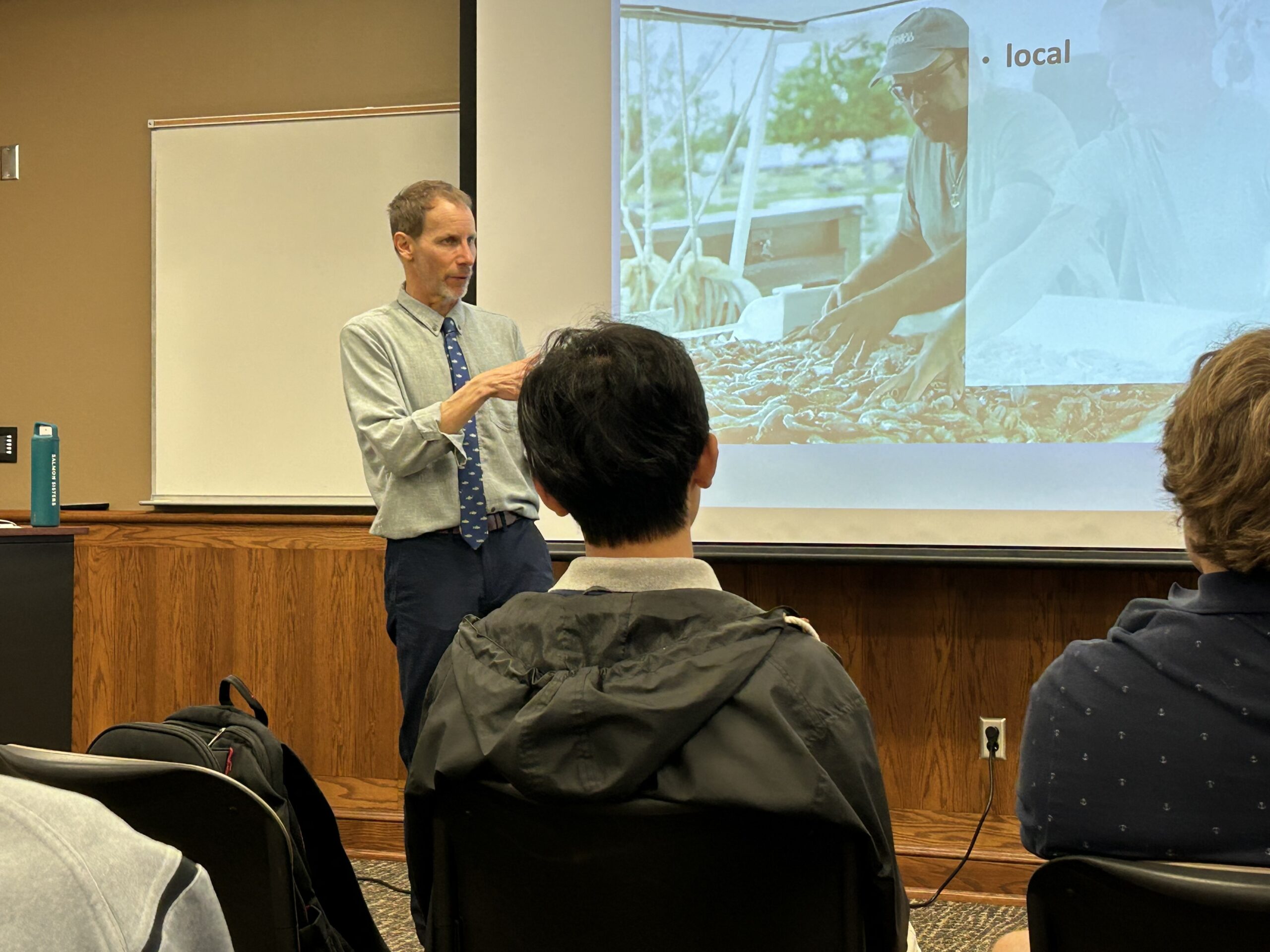There’s always a moment prior to starting a class when I take stock of my audience. Have I shaped the conversation to this class, meeting these students where they are in their curriculum? Do I have the latest research in hand? Did I print enough handouts? Is there any tea left in the water bottle?
The moment passes as the teacher introduces me, and we’re off.
But I nearly froze during that moment standing before a class in late April. I was teaching an Honors Biology class at my alma mater, Woodberry Forest School. I’d taught WFS Honors Bio classes for students via Zoom in previous years.
The first major difference was that I was standing in a classroom of a building I’d never seen. It had been at least 30 years since I’d been back to school.
What really made me pause were two people sitting in the back. Jim Reid, my biology teacher, and Paul Huber, my French teacher and academic adviser from more than 40 years ago smiled as I began.
It was a profound moment. Both teachers had a significant impact on my formative education.
I realized this was the values proposition of the implicit contract we make with teachers we connect with over time. Their mission is to empower students to ask questions and work to find answers. They want to inspire their students to make a difference.
My work with One Fish Foundation has introduced me to teachers who have inspired me because of their commitment to their students.
One such teacher is Christel Driscoll, who teaches an 8th grade sustainability course at Lincoln Middle School. She gets her students to think about their relationship to food and where it comes from as well as their impact on the environment.
We’ve collaborated in the past on innovative ways to prep students for my discussion around global and domestic seafood production and consumption and the complexities of seafood supply chains. One game involved some goldfish crackers (or Swedish Fish) that students “fished” for in small groups in an effort to learn about fair resource allocation and distribution.
Recently, we worked on a project in which I presented students with some of the underlying facts behind the issue involving North Atlantic Right Whales, lobsters and climate change. Students learned how the NARW population has dropped precipitously since 2017 as 40 whales (out of a population of around 360) have died from ship strikes, entanglement in fishing gear, and other reasons. They also learned how the federal government is about to set regulations that could devastate the Maine lobster industry without much hard evidence that Maine lobster gear is causing NARW deaths.
We created a fact sheet and challenged students to break up into groups to assume the role of a federal regulator. How would they propose to protect NARW while also supporting Maine lobstermen. Students then created projects like games, posters or essays describing how they would solve the problem.
Immersing students in problem solving, encouraging them to own their relationship to seafood, whether they eat it or not, are essential in broadening their perspectives and getting them to care about their decisions. Hopefully, that kind of engagement has a lasting effect, to the point where they might want to get involved.
I did not envision myself as a sustainable seafood educator 40 years ago as a Woodberry Forest student. There, I learned to question norms, explore my relationship to the people and environment around me and to pursue new opportunities to learn. I also learned firsthand how teachers can inspire students to inspire others and possibly change minds, and the world.
Thanks Mr. Huber and Mr. Reid!


